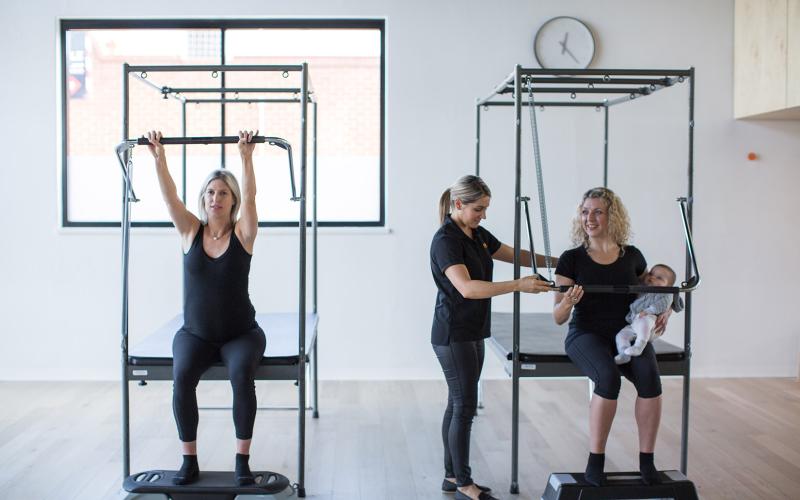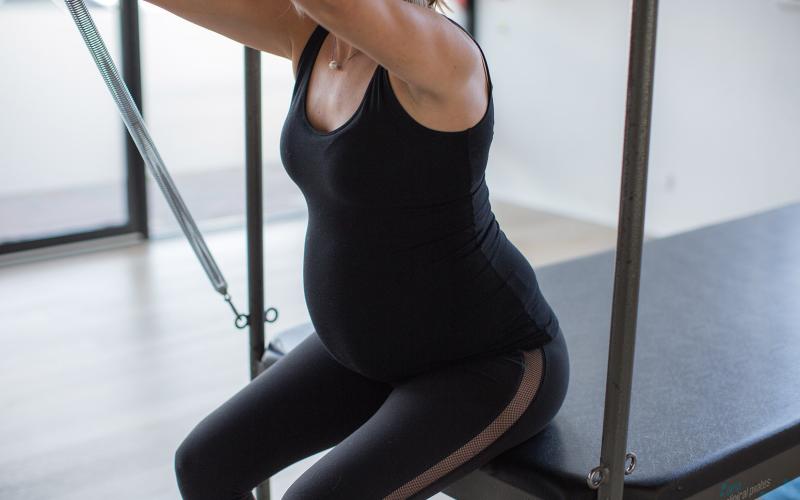Exercise in Pregnancy
In today’s society, we are made very aware of the benefits and recommendations surrounding exercise for our physical and mental health. Pregnancy is a time in our lives when our bodies undergo tremendous changes, in addition to growing a whole new little body (or bodies), so it is no surprise that exercise is just as important as ever.
Documented benefits of physical activity in pregnancy include:
- Improved physical fitness which will assist labour and the postnatal period
- Reduced risk of excessive weight gain
- Reduced low back pain
- Improved sleep
- Reduced anxiety and depressive symptoms
Regular exercise during pregnancy has also been associated with short and less complicated labour, fewer neonatal complications and may be beneficial for prevention and control of obstetric conditions such as pre-eclampsia and gestational diabetes.


Given all these benefits, what is stopping us? What else do we need to take into consideration?
I am currently writing this blog at 25 weeks pregnant and have experienced some of the common barriers many pregnant women will face: nausea, fatigue (especially with a two year old at home), lack of time, pelvic pain and other pregnancy related discomforts. Women may also be unsure as to what type of exercise is safe to participate in during pregnancy.
Current exercise guidelines for the general population apply to healthy pregnant women which recommend 30 minutes of moderate intensity exercise on most days of the week (150-300 minutes per week in total). These recommendations for exercise in pregnancy are provided by the Royal Australian and New Zealand College of Gynaecologists. It is likely that your perception of ‘moderate intensity exercise’ will change when you are pregnant due to the physiological changes occurring to your body, particularly as pregnancy progresses. If you are exercising at ‘moderate intensity’, you should be able to maintain a conversation comfortably throughout. Some women may have various medical or obstetric conditions or a high-risk pregnancy in which case these recommendations may not be appropriate and advice should be obtained from a health care provider.
Ultimately exercise advice and prescription during pregnancy needs to be individualised. Every woman’s experience of pregnancy is different, and we need to consider physiological changes (including your growing belly), other medical conditions, any pain or discomfort, pre-existing fitness and conditioning (pregnancy is not the time to decide to tick running a marathon off your bucket list), your specific goals and how this will fit in with your lifestyle while pregnant.
It is recommended that healthy pregnant women should participate in regular aerobic and strength and conditioning exercise. Aerobic exercise may include brisk walking, stationary cycling, swimming (ensure pool is an adequate temperature- not too warm). Strengthening exercises may utilise light weights, resistance bands and body weight. Exercises should always be performed with correct technique. Pelvic floor muscle exercises should be included into an exercise program during pregnancy. There is strong evidence demonstrating the benefit of pelvic floor exercise during pregnancy in decreasing the risk of postnatal issues such urinary incontinence or pelvic organ prolapse.
If you are not sure where to start, or need a bit of extra motivation, experienced physiotherapists at Flex Rehabilitation Clinic are able to provide assessment and prescription of an appropriate exercise program during your pregnancy. We have FlexFIT and Mums and Bumps classes which are suitable for pregnant women and are individually tailored. For assessment and advice regarding pelvic floor muscle exercises, book an appointment with one of our friendly Pelvic Floor Physiotherapists. We look forward to helping you stay healthy, happy and active during your pregnancy!
For further guidelines and precautions when exercising during pregnancy, please refer to the excellent resource below, published by the Royal Australian and New Zealand College of Gynaecologists.
